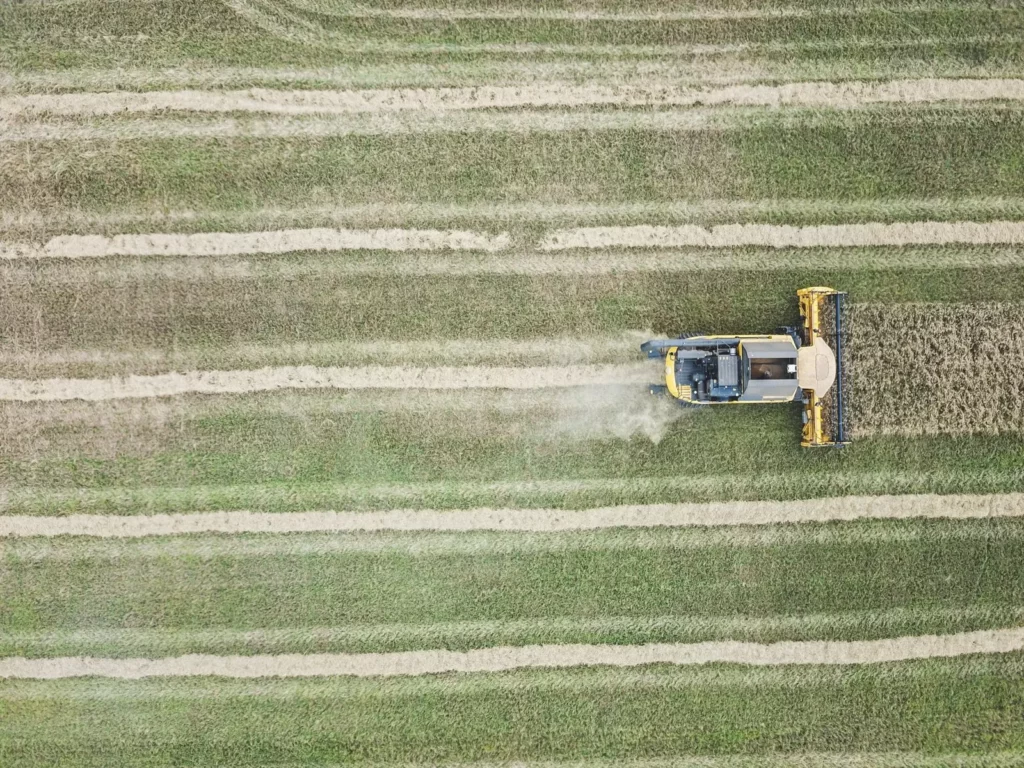THE IMPORTANT LINK BETWEEN TWO INDUSTRY TRENDS: TECHNOLOGY AND SUSTAINABILITY
A new report has outlined the link between digital technology and food sustainability, two of the most important industry trends of 2022.
The importance of sustainable food production has been highlighted in a new report from the World Economic Forum. The report notes that sustainable food production is necessary to meet the needs of a growing global population, and that the industry at large must navigate issues such as deforestation, greenhouse gas emissions, as well as consumer nutrition, and employee security.
Innovation and “investible themes” to drive sustainability in the industry
The World Economic Forum worked with consulting firm Bain & Company to research the impact of digital technology on food sustainability. The research found that “faster innovation and cross-value-chain collaboration are key to change,” and furthermore, there are four “investible themes” in this line of study.
Each investible theme focuses on the environmental, social and governmental issues that the food industry faces, while also having potential to create a return on investment if invested in.
The four themes are:
- Supporting farmers digitally
- Creating end-to-end value chain data transparency
- Reducing waste and enabling circularity
- Nudging consumer behaviour
All four themes have been described by the World Economic Forum as digital innovations that are transforming the global food system.

The need for farming to have a lower impact
The Intergovernmental Panel on Climate CHange estimates that between 21% and 37% of global greenhouse gas emissions come from the food industry. Therefore, the report notes that farming must be more efficient and have a lesser environmental impact. One cited solution for this is technology, which can be used to boost production, as well as providing more environmentally-friendly methods of farming.
That said, the report notes that because of a lack of investment, or insufficient digital infrastructure, technology is not implemented in many agricultural systems, especially in developing markets and countries. A solution to this may come from investing in digital infrastructures such as mobile networks, which would increase accessibility to technology for farmers.
Transparency and traceability key for consumers, and could help reduce food waste
Creating what the World Economic Forum calls “farm-to-fork data transparency” is key to ensuring consumers’ demands for quality assurance are met.
A survey conducted by Bain & Company revealed that 68% of executives said that digital traceability is essential. It is thought that making the food value chain transparent is difficult, but could be greatly beneficial for companies and consumers.
Improved transparency would lead retailers and brands to make the best decisions about what products to source, and from where. This would lead to “more efficient reporting to stakeholder groups, including customers, suppliers, investors, governments and non-governmental organisations.”
The United Nations estimates that approximately one third of all food that is produced globally is wasted. In developing countries, food loss and waste costs approximately €300 billion. In more developed countries, that figure is €700 billion. The introduction of a transparent value chain would offer real-time data from across the supply chain, and analytics could be used to forecast supply and demand.
The role of the consumer, and how to influence behaviours
The report notes the role of the consumer in achieving improved sustainability, especially with regards to eating habits. The United Nations estimates that 14.5% of greenhouse gas emissions originate from the livestock market sector, and alternative protein products are just one way to help negate this.
It is widely-believed that scaling up alternative protein products is key to bringing costs, which may dissuade consumers, down. Digital strategies such as social media campaigns, personalisation and gamification have been cited by the World Economic Forum as methods to influence consumer behaviours, leading to a scale-up in consumer demand.
Higher demand for alternative protein products, for example, would lead to further investment in production and innovation.
Join us at SIAL Paris as exhibitor Join us at SIAL Paris as visitor
